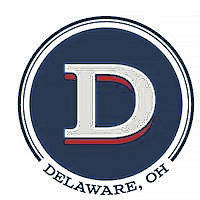
As the proposed bill to raise Ohio’s gas tax as part of the transportation budget moves through the state legislature, the City of Delaware voiced its support of the bill during Monday’s City Council meeting.
Ohio Gov. Mike DeWine originally proposed an 18 cent increase, raising the gas tax from 28 cents per gallon to 46 cents and creating an additional $1.2 billion, as part of a two-year transportation budget bill. Under the amended version passed by the Ohio House last week, that increase has been cut down to 10.7 cents more per gallon, which would bring the tax to 38.7 cents. Beginning in 2020, the rates would be adjusted to account for inflation.
Ohio Sen. Andrew Brenner, who was in attendance at Monday’s meeting to provide an update on his dealings in the Senate, said the tax increase would be phased in over two years with 7 cents coming on Oct. 1 and the additional 3.7 cents would be implemented on that same date next year.
The increase would mark the first time since 2005 Ohio’s gas tax has been raised. Currently, Ohio’s rate ranks as the 21st lowest rate in the country. Should the bill become law, the rate would become the 11th highest in the country.
As part of the bill, local governments would also see an increase in the split of the tax. Currently, revenue from the gas tax is split 60/40 between the state and local governments. Under the Ohio House’s amended version, local government projects would receive 45 percent of the revenue.
Like many local governments across the state, the city of Delaware is struggling to secure funds for pressing issues with road infrastructure. An increased share of a larger revenue pool could be a significant boost to perhaps the city’s biggest headache.
Bill Ferrigno, speaking to council about the need for additional funds, said the targeted budget number for road improvements in 2001 was $1.3 million. Nearly two decades later, Ferrigno said the city spends around $1.2 million with shortfalls still existing.
He cited the cost of asphalt doubling in that time, as well as the city’s road network doubling, as reasons why $1.3 million today is hardly sufficient. He added the $1.3 million target of the early 2000s would now equate to $3.9 million needed today to do the same work.
“You can see the gap we have in what we spend and what we need,” Ferrigno said. “So, this is very real that this is being addressed. And we have just as much need as the state does.”
Vice Mayor Kent Shafer said the positive of the gas tax is that its effect is tied to how much motorists use the roads.
“Nobody likes to pay more for gasoline,” Shafer said. “It’s basically a user tax. The more you use the roads, the more you pay.”
Councilman Jim Browning said he is in favor of the higher 18 cent tax increase, saying it would put Ohio more in line with other states.
However, not all council members gave their support to the increased gas tax. Councilwoman Lisa Keller called the proposed bill a “tricky question,” and said that while she is certainly in favor of more money for the city’s roads, she isn’t sure increasing the gas tax is the only solution.
“I think there were a lot of cuts that were made back in 2008 … there are a lot of other avenues of reversing some of those things,” Keller said. “It’s not that I’m against funding for roads, because no one can argue we certainly need that. I just think there are other opportunities besides just an 18 cent gas tax (increase).”
Along with Keller, Councilman Kyle Rohrer also voted against the resolution to show support for the increased gas tax, which ultimately passed with a 5-2 vote.
The bill is now before the Ohio Senate, and the deadline for the bill to be signed into law is March 31. Should it pass, the law would go into effect July 1.


